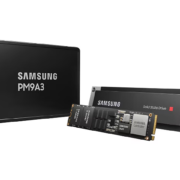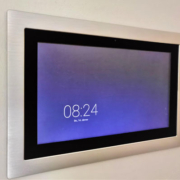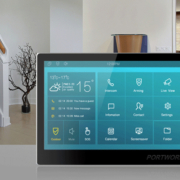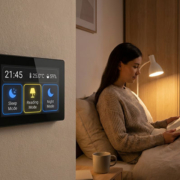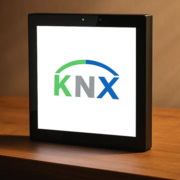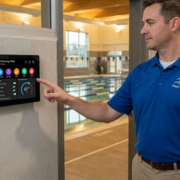What smart home ecosystems are compatible with different control panels? (e.g., Apple HomeKit, Zigbee, Z-Wave, Matter)
Smart home control panels act as centralized hubs or interfaces to manage devices throughout a connected home. Their compatibility with various ecosystems (Apple HomeKit, Zigbee, Z-Wave, Matter, etc.) depends on both hardware integration and software support. Here’s a breakdown of how different ecosystems integrate with smart home control panels:
1. Apple HomeKit
Compatibility
- Native support is limited to Apple-certified devices.
- Control panels must meet Apple’s MFi (Made for iPhone/iPad) program to be compatible.
- iPads and iPhones can serve as panels, but third-party control panels need specific chips (like the Apple Secure Enclave) and Apple certification.
Use Case
- Mostly used in Apple-centric homes.
- Popular with voice control via Siri, and strong privacy/security features.
Limitations
- Fewer third-party panel options.
- High certification standards and limited OS flexibility.
2. Zigbee
Compatibility
- Widely supported by Android-based control panels and smart hubs (e.g., those using Zigbee 3.0).
- Brands like Portworld, Philips Hue, and Samsung SmartThings use Zigbee for device communication.
Use Case
- Ideal for mesh networks in smart homes.
- Great for controlling lights, sensors, locks, and thermostats.
Considerations
- Requires a Zigbee module or gateway if not embedded.
- Often needs a bridge to connect to voice assistants or cloud services.
3. Z-Wave
Compatibility
- Supported in many home automation systems and industrial control panels.
- Used by brands like Fibaro, Aeotec, and Vera.
- Z-Wave-enabled control panels must have a Z-Wave chip and certification.
Use Case
- Strong in security systems, lighting, and door locks.
- Better range and less interference than Zigbee.
Considerations
- Interoperability is good, but limited to Z-Wave certified devices.
- Requires a Z-Wave controller module in the panel.
4. Matter
Compatibility
- Emerging unified standard backed by Apple, Google, Amazon, and the Connectivity Standards Alliance.
- Android-based control panels and smart home hubs are increasingly adding Matter support via firmware updates.
Use Case
- Designed for seamless interoperability across brands and platforms.
- Works with Wi-Fi, Ethernet, and Thread.
Considerations
- Still relatively new – full ecosystem maturity is ongoing.
- Control panels must have Matter-compatible firmware, and Thread radios (if needed).
5. Google Home / Google Assistant
Compatibility
- Android-based smart panels are naturally compatible.
- Easily integrates with Google Assistant, allowing voice control and automation routines.
Use Case
- Excellent for voice-controlled environments.
- Broad support for third-party devices and IoT platforms.
Considerations
- Requires Google APIs and authentication setup.
- Not all advanced features (like routines) are supported outside Google-certified hardware.
6. Amazon Alexa
Compatibility
- Works with many Android control panels.
- Alexa SDK can be integrated for voice control and device management.
Use Case
- Strong integration with Echo ecosystem and Alexa-compatible devices.
- Good for multi-room audio, lighting, and security.
Considerations
-
Requires cloud connectivity and possibly AVS (Alexa Voice Service) certification.
Custom Smart Home Platforms (e.g., Home Assistant, OpenHAB, Domoticz)
Compatibility
- Work with Android/Linux panels with open API support.
- Support multi-protocol integration, including Zigbee, Z-Wave, Wi-Fi, Bluetooth, Matter, and MQTT.
Use Case
- Ideal for DIY and prosumer installations.
- Full control over automation logic, data, and UI.
Considerations
- Requires technical knowledge.
- Some configurations may require external dongles or bridges.
Summary Table
| Ecosystem | Compatibility with Panels | Key Requirements | Best Use Case |
|---|---|---|---|
| Apple HomeKit | Limited unless Apple-certified | MFi chips, Secure Enclave, Apple SDK | Apple-centric smart homes |
| Zigbee | Widely supported | Zigbee module or gateway | Mesh networks, lighting, sensors |
| Z-Wave | Common in pro panels | Z-Wave module, certification | Security, smart locks |
| Matter | Increasingly supported | Matter-compatible firmware + Thread (optional) | Cross-platform integration |
| Google Home | High compatibility with Android | Google Assistant integration | Voice control, automation |
| Amazon Alexa | Easily added to Android panels | Alexa SDK or AVS integration | Voice control, smart audio |
| Home Assistant | Excellent with Linux/Android | MQTT, Zigbee/Z-Wave dongles, DIY setup | Custom setups, advanced users |
If you’re developing or selecting a smart control panel (like those offered by Portworld), it’s essential to check:
- Hardware interfaces (e.g., built-in Zigbee/Z-Wave/Matter modules),
- OS (Android/Linux/Windows),
- SDK/API openness,
- Integration support for your chosen ecosystem.

